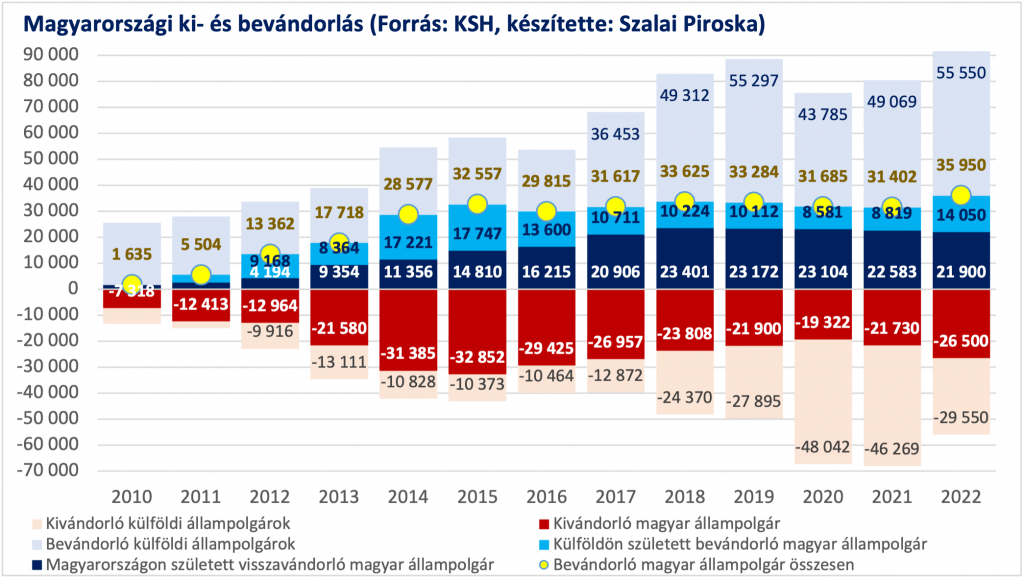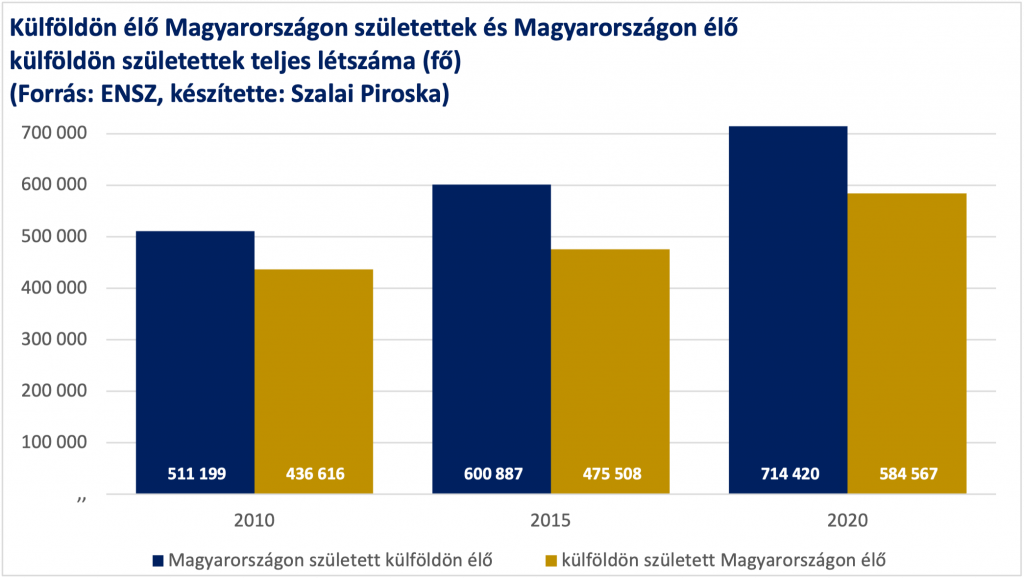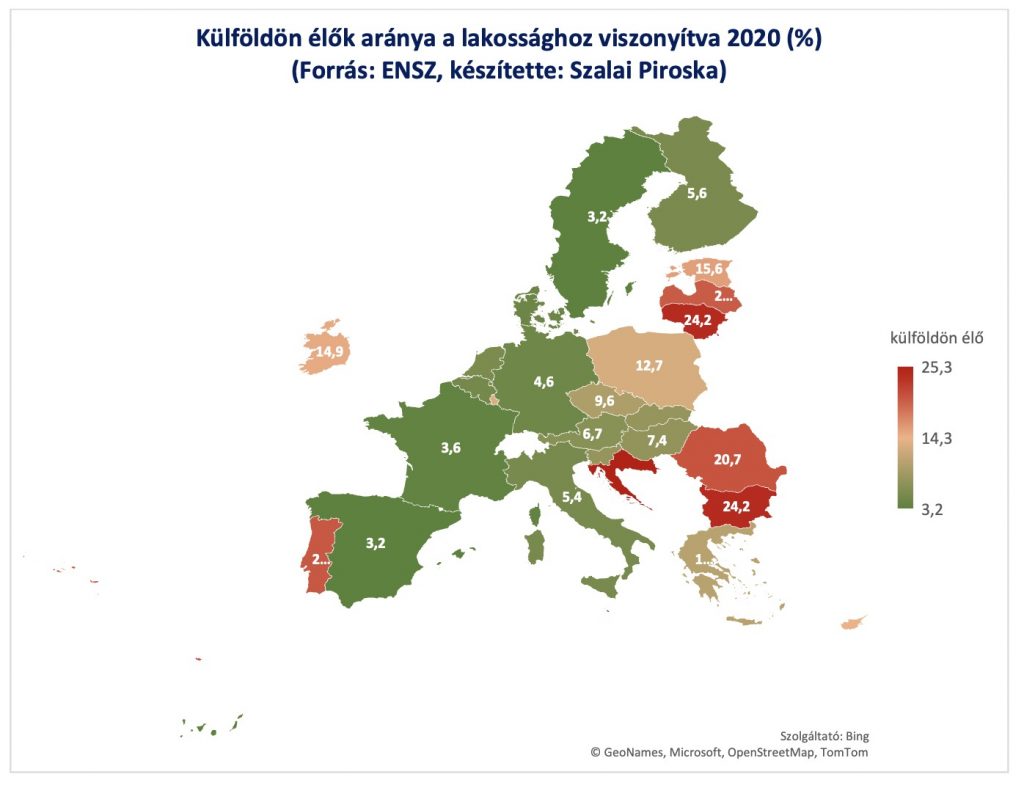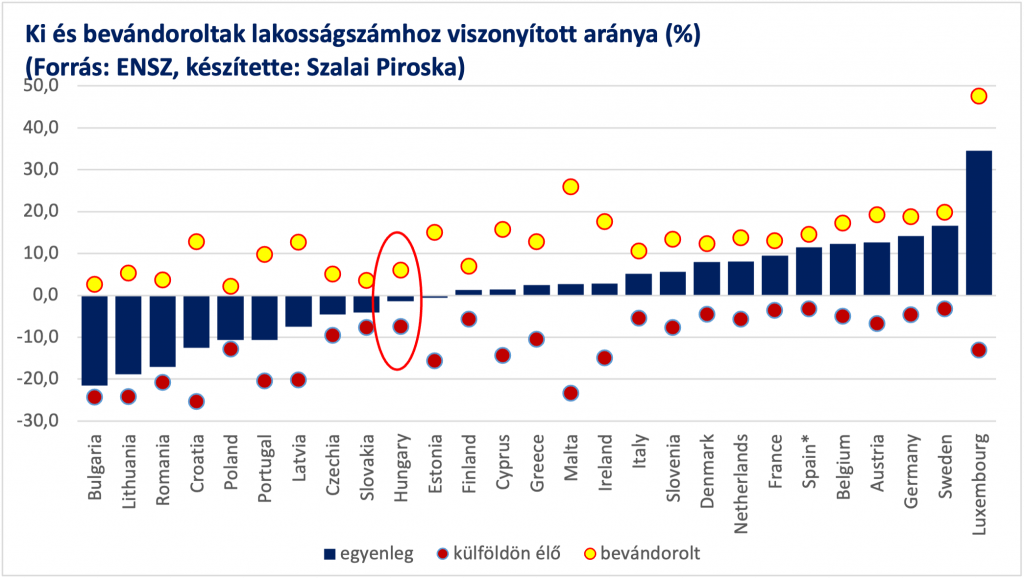Once again, emigration and immigration became a trendy topic, but those in the media are more concerned with raising the alarm rather than giving an accurate picture of where our country stands on migration.
First of all, let’s clarify the concepts!
We consider as emigrants from Hungary those Hungarian citizens who leave Hungary (actually or planned to leave Hungary) for at least 12 months, and foreign citizens holding a registration or residence permit or a permit for permanent residence who leave Hungary in the given year without the intention of returning, whose permit has expired and who have not applied for a new permit, and whose permit has been cancelled due to revocation.
An immigrant to Hungary is the opposite of an emigrant, i.e. a Hungarian citizen who lived / was born abroad and arrived in Hungary with the intention of establishment, and people who returned from a stay abroad of at least 12 months and are foreign nationals who entered Hungary in the given year and obtained a proper residence or settlement permit or registration certificate in accordance with the laws in force.
The HCSO publishes both figures annually, and even breaks immigrants down into return migrants born in Hungary (those returning to Hungary after a 12 months or longer residence abroad) and immigrants born abroad. This shows that, since 2016, more Hungarian citizens have moved to our country than those who emigrated. And among immigrant Hungarian citizens, the proportion of those who previously emigrated and now return is higher than that of those born abroad.

Recently, we can increasingly often hear the data that seven hundred thousand Hungarians have emigrated abroad. This is only one half of the truth. According to UN statistics, in 2020 there were 714,420 people born in our country and not living in Hungary. In 1990, there were already four hundred thousand Hungarians living abroad, and we should not think that these seven hundred thousand people have recently moved out from Hungary. And UN statistics also show that there are 584,567 of our fellow citizens who were not born in Hungary but live here. These data do not allow us to infer citizenship.

and abroad born citizens living in Hungary (each)
(Source: ENSZ, by: Piroska Szalai)
According to the latest UN statistics, in 2020 we had the lowest proportion of foreign-born people living in our country in comparison with the current population of the surrounding Eastern European countries. Even Slovakia and Slovenia had higher rates, although we are the three countries with the lowest emigration rates among the former Eastern bloc countries.

(Source: ENSZ, by: Piroska Szalai)
If we look at the difference between the proportion of immigrants and expatriates in the population, namely their balance, Hungary, Estonia, Finland and Cyprus are the most balanced in Europe, with a difference of less than 1.5 percentage points.

(Source: ENSZ, by: Piroska Szalai)
Source of the opening image: Wikipedia / Sebleouf



